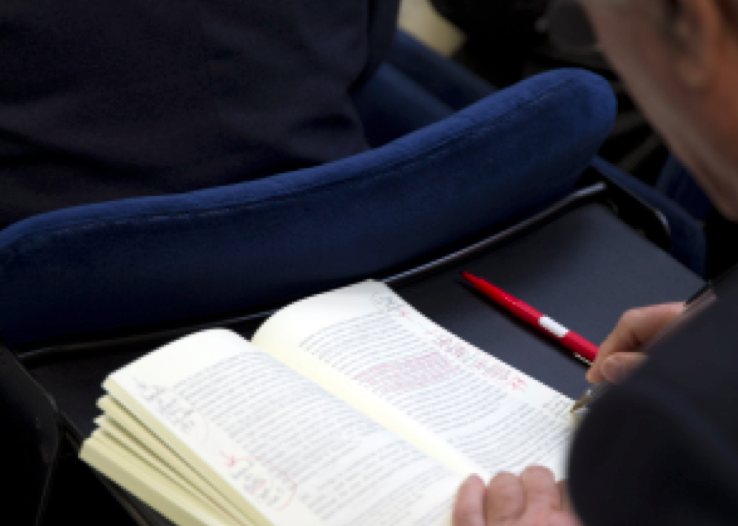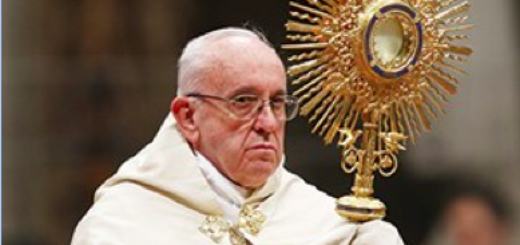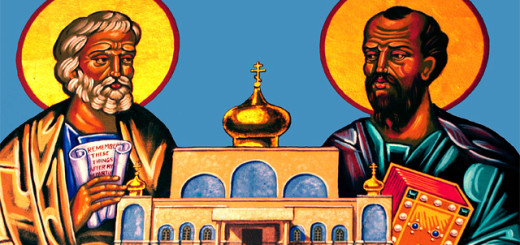Pope Francis has created confusion, where we needed clarity

Confusion confounded in Amoris Letitia
Clifford Longley, in Tablet Weekly, UK, 18 April 2016
In Tablet the International Catholic Weekly in UK one of the blog writers argue that Pope’s thesis on the synod of the family is perfect in every way – except the vital topic of communion for divorced and remarried.
(Note: What is the great confusion? It is all about the question: Can divorced and remarried receive communion? According to traditional teaching it is a definite NO because they are in mortal sin. In the Joy of Love (Amoris Laetitia) Francis tells us, not to say they are in living in sin or in irregular situation but to understand they fully belong to the church, and can even receive communion (which is not only a reward for the perfect but a medicine for the sick) with the help of a conscience rectified by a counseling priest who is not to substitute or replace the conscience of the recipient. Now what does that winding oneself in hundred knots mean? Yes or No? What we want to know is: if he/she is a saint or sinner? “Oh please con’t call anyone a sinner”, says Francis, “Don’t be judgemental” he says following his own example: “Who am I to judge!” But that doesn’t give us the Yes or No answer we are looking for. That means no clear answer from Francis , so all this confusion.
Now, who is an adulterer? Let us do a little hard talk. Jesus is very clear on it: " You have learnt how it was said: You must not commit adultry. But I say this to you. If a man looks at another woman lustfully, he has already committed adultery with her in his heart."(Mat.5, 27) Wow! Then who among us is not an adulterer? No wonder why Francis was the first to describe himself: “I am sinner”? Also why the Synod fathers described themselves as (Sncti peccatori = Holy sinners) starting with the Holy Father who confesses every other day in public view. Now do you get why the confusion is confounded?
There was a young and enterprising preacher who used to give a 3-part sermon every Sunday after reading the Gospel: 1. After reading the Gospel he used to tell those in the pews: “You have heard what Gospel has to say which is very clear and needs no explanation.” 2. Now what does the Church or church men say about it? Then He used to give various interpretations by the church. 3. Now do you know what I think of it? Answering that he used to give his personal view. Then he used to conclude saying: Now you are all very intelligent and literate people, so you draw your own conclusions and follow what your conscience dictates.
Now this is what this scribe has been saying for long ad nauseam in these columns or outside. Just follow your commanding conscience formed honestly and prayerfully. If the conscience is commanding, it is the voice of God and so just obey. You are the sacred living temple of God, far superior to any man-made brick-and-mortar dead chapels, churches, cathedrals or temples or mosques, and the conscience speaking to you from within you is the voice of the Deity enthroned in you. That is why you are called the temple of God. If your conscience is caught between two or three doubts or options, just consult any better informed person’s view, who need not at all be a priest or even a religious person, enough he be honest and better informed and then act. Even here, if you are not able to rid yourself of all doubts, just do one of the easiest of options, because the principle is: (In dubio libertas) In doubt, any of the options are equally valid and acceptable before God.
So finding God and his guidance is the easiest thing in life. All humans – wise, foolish, ignorant, illiterate, rich, poor – need not go any where searching. They have only to look within themselves and listen to their consciences. Follow the advise given to those sailing on the Face of Amazon river: “If you are feeling very thirsty, just drop the bucket because you are sailing in the face of Amazon full of clean potable water not tainted by salt.” And for God’s help and guidance, just peep into yourself, to your conscience speaking to you. That is the Voice of God speaking to you. Of course what is said above is the considered conviction of this scribe which no one is bound to follow, as one is bound to follow one’s own conscience. What I wish is that readers react honestly and boldly expressing their views. Imitating the readers in the Tablet, added at the end. james kottoor, editor)
Still they argue, argue, argue. Yes he did; no he didn't. He can; he can't. What exactly did Pope Francis intend to convey by chapter eight of his apostolic exhortation Amoris Laetitia? Conservatives say Pope Francis cannot have meant that "divorced and remarried Catholics could be admitted to Holy Communion in certain circumstances", as many have interpreted the document, because that would be plain contrary to long-standing Catholic practice sanctioned by the magisterium.
But that would have meant that he too is a conservative, and we know he is a liberal. We are free to interpret his words in the light of that. But why the uncertainty? Why couldn't he have spelt it out with a simple statement such as the one above? Was he under pressure, for instance facing threats of resignation from senior cardinals in the Vatican, so he had to create a smoke screen so everyone could claim a victory? How does that help the rest of us, or at least those of us who aren't conservative curial cardinals? He has created confusion precisely where there needs to be clarity.
In every other respect Amoris Laetitia is a pastoral triumph. But not this one. It is a mess. In those circumstances the only possible advice is to follow the instincts and intuitions of one's conscience as honestly as possible, consulting whomever one likes in the process. Let liberals interpret the document liberally and conservatives conservatively. But don't let anybody tell them they are wrong, because nobody knows that for sure.
I have to say, on a forensic examination of the text alongside other previous statements on these issues, that the Pope's conservative critics do have a point; indeed several of them. Saying that doesn't alter my fundamental conclusion that the liberals are right – the Pope's intention is that divorced and remarried Catholics can receive Holy Communion in certain circumstances. But let's face it, many of them do already.
There are several places in the text where Pope Francis could be accused of disingenuousness – I hesitate out of respect to say dishonesty – by drawing conclusions that do not follow from the evidence he cites, by choosing selectively from some of the sources he quotes, and by ignoring related passages which go against his argument. If I had written this document and taken such liberties with the evidence, I would be very uneasy. These are the sorts of weaknesses which, had they occurred in a document at the centre of a libel action, would have been mercilessly exposed under cross examination by a well briefed counsel.
Take footnote 345 in paragraph 302, which refers to a 2000 statement by the Pontifical Council for Legislative Texts called Declaration Concerning the Admission to Holy Communion of Faithful Who are Divorced and Remarried. The passage in Amoris Laetitia to which the footnote is attached states "…a negative judgment about an objective situation does not imply a judgement about the imputability or culpability of the person." It can be deduced that this refers specifically to the issue of the admission of divorced and remarried Catholics to Communion from an earlier sentence in the previous paragraph – "Hence it can no longer simply be said that all those in any 'irregular' situation are living in a state of mortal sin and are deprived of sanctifying grace."
Yet the entire argument of the 2000 document points emphatically and unambiguously the other way. The issue here is the correct interpretation of Canon 915 – "Those … who obstinately persist in manifest grave sin, are not to be admitted to Holy Communion." It refers to unnamed authors who "offer various interpretations of the above-cited canon that exclude from its application the situation of those who are divorced and remarried". It then lists those interpretations and dismisses each one. The degree of subjective culpability – the good faith of the remarried Catholic – is not relevant, it says; the test is objective, and applies to all those who are in this situation regardless of how they got there, whether it was their fault, and what their conscience had to say about it. Whatever, they are "obstinately persisting in manifest sin."
There is no pussy-footing here with the oft-quoted provision that to avoid scandal a priest should not publicly refuse Communion even to someone he or she knows is not entitled to it under this rubric. "The minister of Communion must refuse to distribute it to those who are publicly unworthy," it bluntly declares. Indeed it goes further, and says the priest must instruct deacons and lay Eucharistic ministers that they too must also refuse to distribute Communion to divorced and remarried Catholics. In other words they have to be told which members of the parish this applies to. This is an almost impossibly onerous responsibility to put upon a lay person, not to mention a probable breach of confidence by the priest. And it could lead to severe scandal in the parish. That does not seem to have occurred to the drafters.
I have never heard of a parish applying it. But why then does the Pope cite this appalling document, in support of his case that degree of subjective culpability must be taken into account, the exact opposite of what it plainly says? Why not just let this particularly nasty sleeping dog lie? It is mystifying.
Something similar happens when Pope Francis deals with the way this issue is treated in Pope John Paul II's 1981 exhortation, Familiaris Consortio. It too followed a synod on the family, the year before. He quotes it as saying "Pastors must know that, for the sake of truth, they are obliged to exercise careful discernment of situations’.
He goes on to quote from the final report of the 2015 synod – "Therefore, while clearly stating the Church’s teaching, pastors are to avoid judgements that do not take into account the complexity of various situations, and they are to be attentive, by necessity, to how people experience and endure distress because of their condition”.
But Pope John Paul II did not stop there. "There is in fact a difference," he insisted in 1981, "between those who have sincerely tried to save their first marriage and have been unjustly abandoned, and those who through their own grave fault have destroyed a canonically valid marriage. Finally, there are those who have entered into a second union for the sake of the children's upbringing, and who are sometimes subjectively certain in conscience that their previous and irreparably destroyed marriage had never been valid." All well and good so far…
But then, disregarding all that talk about discernment of various degrees of guilt, Pope John Paul II slams on the brakes and gives this unambiguously negative ruling: "However, the Church reaffirms her practice, which is based upon Sacred Scripture, of not admitting to Eucharistic Communion divorced persons who have remarried. They are unable to be admitted thereto from the fact that their state and condition of life objectively contradict that union of between Christ and the Church which is signified and effected by the Eucharist. Besides this, there is another special pastoral reason: if these people were admitted to the Eucharist, the faithful would be led into error and confusion regarding the Church's teaching about the indissolubility of marriage."
But Pope Francis does not quote this definitive declaration, surely central to this whole debate, and unless one knows quite a lot of recent church history, one might not even be aware of it. The impression he gives is that Pope John Paul II wants priests to discern culpability and proceed accordingly. Instead, at this point in the text, Familiaris Consortio changes direction. It is inconsistent, even incoherent. Did Pope Francis not know this?
It goes on in similar hardline vein by spelling out that the only divorced and remarried Catholics permitted to receive Holy Communion are those who "take on themselves the duty to live in complete continence, that is, by abstinence from the acts proper to married couples." This is the so-called "brother and sister" solution. Forget all about "careful discernment of situations" – abstinence from sexual relations is the only option.
In these passages Pope Francis is totally ignoring his predecessor's negative ruling, but is quoting Familiaris Consortio as if it meant the opposite. The fact is I think Francis is right and John Paul II was wrong on the point of principle, but the fly in the ointment is the way quotations to back up his argument are taken from the earlier Pope selectively, and I would have to say, highly tendentiously.
The same thing happens with the brother and sister solution itself. It is mentioned both in Familiaris Consortio and in the 2000 Declaration regarding legislative texts. But it is not mentioned in connection with divorce in any document of the Second Vatican Council. Yet Pope Francis invokes a passage from Gaudium et Spes (Church in the Modern World) of 1965, to eliminate the brother and sister solution as a feasible option. Footnote 329 states that "many people, knowing and accepting the possibility of living 'as brothers and sisters' which the Church offers them, point out that if certain expressions of intimacy are lacking, 'it often happens that faithfulness is endangered and the good of the children suffers'." And gives the reference to the appropriate Gaudium et Spes paragraph. I am sure this is sound advice, but is it strictly honest to quote in support of it a remark from a Vatican II document that was discussing something else entirely?
What is irritating is that a good sub-editor, willing to shorten this overlong text by a few hundred words, could easily have left out these contentious misrepresentations and not weakened the argument one bit. Indeed, without them it would have less assailable and therefore stronger. Were they kept in deliberately, as a kind of sabotage by curial officials who did not like the way things were going? The one thing this demonstrates to me is that the claim that Pope Francis has not "changed" church doctrine is more spin than truth.
True, he hasn't actually announced any changes. His text just ignores previous teachings that he does not agree with, and quotes the bits he does. He is the Pope after all – he is entitled to say about Familiaris Consortio what Cardinal Raymond Burke has said about Amoris Laetitia, that if anyone disagrees with it, it can safely be dismissed as one man's personal opinion.
In fact it is far better than the 1981 document. Pope John Paul II was laying down rules and imposing them on people's consciences – precisely what Pope Francis says church teaching should not do. Amoris Laetitia speaks to the truth of intimate human relationships like no other Catholic document I have ever come across. It hands back to people the right to exercise their own moral judgements, asking their pastors for help when appropriate. It does not leave those pastors in the seat of judgement: they are no longer gatekeepers of the Sacraments, checking the passports of those who apply.
While congratulating him on it, I sincerely wish Pope Francis had been more careful with the evidence he cited. He has handed his critics more ammunition than he needed to. And so the arguments will go on and on – and on.
Given below are six reactions to the article above
which appeared in the UK Tablet weekly
1.Comment by: Louise,Posted: 19/04/2016
In response to Lepanto:' This text is at a minimum, enormously dangerous. Confusion leads to variation in practice. Variation in practice leads to discord. Discord leads to scandal. Scandal destroys.' The assumption appears to be that there was no confusion or discord or scandal in the minds of the faithful and clergy prior to the issuing of Amoris Laetitia. Clearly this assumption holds no water bearing in mind the deluge of scandals over the past few years, which Pope Francis is having to deal with. I fail to see how entrusting clergy to form consciences rather than replace them will automatically give rise to scandal. It is striking how little faith there is in some quarters in the ability of the servants of the Church to form mature Catholics. Amoris Laetitia is inspiring and humane. It is a joy.
2.Comment by: Terence Weldon, osted: 19/04/2016
Let's be clear: It's not Amoris Laetitia that is "sowing confusion" – it's the doctrine itself. For example, the primacy of conscience is abundantly clear from accepted teaching, and it's not appropriate for others to attempt to judge the state of another's conscience. So, what then is "manifest grave sin?" Longley's text itself notes the problems of the 2000 text of the Council for legislative texts, and also contradictory elements in the writing of John Paul II.
The further back we go in church teaching, the more contradictions emerge. Go back far enough in history, and we come to the celebrated Thomas Aquinas. But, as Francis notes in Amoris Laetitiae, much of modern perceptions of Thomistic moral theology are far removed from the main thrust of his theology.
That the confusion is evident in Amoris Laetitiae is no surprise. It has been widely noted that the draft was prepared by some of Francis' closest confidantes – but was then subjected to additional revisions at the instigation of the CDF, anxious to retain their doctrinal supremacy (while Francis himself went out if his way in this document, to downplay the importance of doctrine as a set of rigid rules).
This confusion over Church teaching is especially obvious for the question of divorce and communion and remarriage, but it is also evident elsewhere – for example, concerning gay and lesbian people, who are barely mentioned in the document.
3. Comment by: Frank Callus, Posted: 19/04/2016
I think that the answer to Lepanto is to be found early in the Exhortation. Pope Francis reminds priests and bishops that they are to form consciences not replace them. In so doing he recognises the complexities of personal relationships and the need for people to find their place on the journey of salvation. There is a world of difference between a serial adulterer and a person, abandoned by his/her partner, trying to re-establish a new life. Jesus was clear about the issue when he spoke to the woman caught in adultery, but not before he had challenged her accusers with their own sinfulness. The Catholic Church is being summoned to a new relationship with its sinful flock in the Year of Mercy, but within a perception that all of us are in need of this mercy and to believe otherwise is to delude ourselves.
4.Comment by: Lepanto,Posted: 19/04/2016
The CCC is very clear, as well as many historical teachings and council documents, on the nature of mortal sin. If a person is in a valid Catholic marriage by virtue of that, they know what adultery consists of. If they choose to leave their spouse and engage in sexual relations with another, that is adultery. Jesus was precise on this. "If a man looks at another woman with lust, he has committed adultery." Wow, I wonder how that clear teaching is now viewed in light of this exhortation. How do we think Jesus reacted to those who heard this teaching of His, and later on persisted in lusting after women, under the guise of conscience? I would think He would look at them compassionately as always, but ask them: "Which word of my teaching did you not understand?" He really could not have been more precise on adultery, because adultery presupposes monogamous fidelity, even in the heart if not in the outward act. We are treading on thin ice at best when we attempt to reframe this teaching as if we know better than He did on this subject.
5.Comment by: Richard Brooke, Posted: 18/04/2016
In response to Lepanto, it never could, under traditional moral doctrine, simply be said of anyone else that they were in a state of mortal sin. Observable behaviour may be described as grievous matter, but traditional doctrine insists that full knowledge and full consent are also required for an act to constitute a mortal sin. Whether such a sin has occurred can be known in the first instance only to God, and to an individual penitent, who is the only person on earth who can judge the fullness of their knowledge and consent (albeit that they may draw on the wisdom of a confessor in reaching this judgement) . We do well to emulate Pope Francis' "Who am I to judge?", which both exemplifies the spirit of Christian mercy and is based on thoroughly traditional moral theology.
6.Comment by: Lepanto, Posted: 18/04/2016
The text: "it can no longer simply be said that those living in any irregular situation are in a state of mortal sin," constitutes a clear change in discipline, and it also contradicts Church teaching. How can anyone argue this is not the case? "It can no longer be…" Where does license to discern stop? Are there any objectively immoral "irregular" situations anymore? This text is at a minimum, enormously dangerous. Confusion leads to variation in practice. Variation in practice leads to discord. Discord leads to scandal. Scandal destroys. We need the Church to pick up the torch of chastity and inspire the faithful to this forgotten virtue, versus giving us a way through our conscience, to rationalize culpability of grave matter. Is that not the same temptation that Adam and Eve fell into, to decide on their own what was good and evil, to be like gods, versus abiding by the clear boundary which God has established in His mercy, as represented by the tree of knowledge? May God help us all.

















Those who want to be confused, don't need any grave matter for their confusion. The cause of confusion mentioned in this article is the unwillingness to change. The Pope had been trying to make people think and change their attitude to God, to sacraments, to law, sin and fellow christians. In all these cases there's a wide range for an open mind to reject the old and receive the new that brings freedom and love. I personally experience no confusion at all in what the pope has so far said and has put down in the latest document. It is all in keeping with his vision of love. Even God and the sacraments of the church come only second to it. It is people who have given priority to age old beliefs and teachings of the church and its unending laws that find his explanations confusing. Those who are unwilling to change and those who see man made laws as more important than man hiself are doomed to unending confusion.